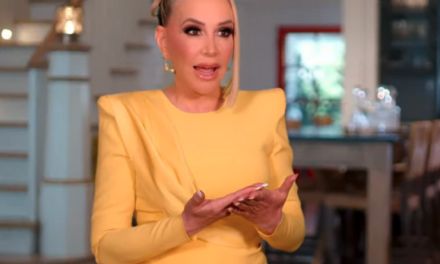
Estrangement is a widespread and stigmatized condition when an individual cuts ties with one or more family members. Over one-quarter of the population deals with either an adult child or another family member’s decision to disconnect. Cut-off family members and parents experience grief marking the loss of the relationship status.
Sadly, anxiety concerning whether an adult child will resume communication can linger. Through uncertainty and discomfort parents search for how to cope with the onslaught of thoughts and the loss of their adult child. Estranged parents feel bewildered and wonder what to do.
Estranged Parents
Recently, awareness has increased with stories of celebrity estrangements. People are more familiar with adult children cutting ties with their parents. But with all the uncertainty surrounding the condition, what should parents do?
Each story is unique, but parents typically respond with many uncomfortable emotions. Losing the relationship status with an adult child can illicit anger, guilt, denial, bargaining, and shock.
Estrangement’s complex shape differs from the loss caused by death. There are no ceremonies with supportive family and friends. The shame often binds parents to secrecy. Well-meaning friends usually don’t know what to say, or they suggest unhelpful advice. The sad fact that an adult child has decided to intentionally separate is heartbreaking.
No parent is prepared for their kid to walk away from them. Usually, the unwanted break-off leaves parents in a heap of reactions that potentially harm their prospects of resolving the problem. Other family members take sides, and the estrangement with your adult child can evolve into a crisis of epic proportions. In addition, parents can be angry and react harshly by expunging their children in retaliation.
Parental Expectations Vs. Adult Kids Expectations
The more I speak with parents in my practice, the wider the divide appears. As we age, we recognize the temporary nature of our lives. Our time resources are diminishing. We are keenly aware of our priorities. If we have families, we likely want to strengthen our relationships.
We want to spend holidays and perhaps vacations together. We like being included in family functions. Exceptions to desiring more time were when the family was entrenched in dysfunction, toxicity, or abuse.
Generally, parents want closer ties than their kids. In their developmental life stage, adult children consider their careers, friendships, interests, and family units. They are less likely to prioritize communication with their parents since their priorities are elsewhere. Indeed, there are exceptions. However, studies of individuals over their lifespan defer to perceptions supporting polarized priorities.
Contributors to Cut-Offs
Parental expectations of wanting closer family ties and the gap with what adult children desire is just one facet of estrangement. Studies implicate personality, environment, parental attachment, intergenerational stressors, divorce, parental alienation, poverty, mental illness, and addictions in the likelihood of family estrangement.
Adult children can couple with a toxic partner or are unhinged over inheritance matters. Families can be brutal when there are different lifestyles and values. Parent-child relationships that are overly close-enmeshed and over-dependent can backfire into a cut-off. When it strikes, all parties are impacted.
Studies indicate that adult children experience grief but claim they do it to save themselves. Something went on that was too much for them to bear, so they needed space. Parents are shocked, angry, guilty, ashamed, bewildered, anxious, and afraid. The anxiety over resolving and understanding what on earth happened can be devastating.
Moving Towards a Newfound Acceptance
Parents grieve and process to find their way through. The stories they tell are filled with confusion and sometimes regret. What happened? Where did I go wrong? What is wrong with me? What happened to my child?
Parents process their feelings by moving towards them courageously. They talk to a safe person, resume activities they enjoy, and spend time with those that love and value them. They focus on caring for themselves and learning communication skills.
Coleman’s Five Mistakes
Joshua Coleman, psychologist and author of Rules of Estrangement, shares the estrangement with his daughter and clinical expertise. His experience working with parents of estranged adult children and research includes the “five mistakes” parents make.
Interestingly, the five mistakes are also common among non-estranged parents. Brave parents admit they are angry, upset, and hurt about the unfairness of the estrangement condition. Anxiety over resolving the cut-off can lead to thinking reconciliation will happen quickly.
This false expectation can lead to frustration and disappointment. I hear from parents overwhelmed by guilt and regret that they resorted to exploding on their adult child. Many also assume that their kid’s cut-off is all about them.
Joshua Colemans Five Mistakes Parents Make
- Motivate by Guilt
- Return Fire with Fire
- Believe the Relationship is Based on Fairness
- Thinking Reconciliation Will Happen Quickly
- Assuming That Your Kids Distant Behavior is All About You
What to Do When You Feel Guilty
Guilt is a self-accusation over something you feel you did wrong. If you are hypercritical and ruminating on your mistakes, ask yourself if beating yourself up has worked for you.
All parents make mistakes; we posture our amended thinking by reminding ourselves we did the best we could at the time. Most parents have regrets, but we can’t allow them to control us. If we find ourselves stuck in guilt and regret, we should get support to work it through. In essence, we need to forgive ourselves for being imperfect and move forward.
The positive side of recognizing our mistakes is committing to future improvements. Regarding our adult kids, there are wiser ways to deal with them than we are inclined to, especially when we are grieving. Joshua Coleman suggests parents identify what they did, take responsibility, and consider making amends.
Estrangement is extraordinarily stressful and heartbreaking. The cut-off harms all parties, but parents find themselves ill-prepared and grasping for solutions and answers. When we are estranged, being informed, engaging in self-care, and understanding adult children and the contributors to the cut-off prepare us for the possible length of our estrangement.
Being self-compassionate and processing your grief over the loss of the relationship status will strengthen you and help you to move forward. Your life will be different; however, you can find joy again if you choose.
Let’s Have a Conversation:
Are you committed to a self-care routine that manages stress and its effects on your body and psychological state? What books have been most helpful to you?





